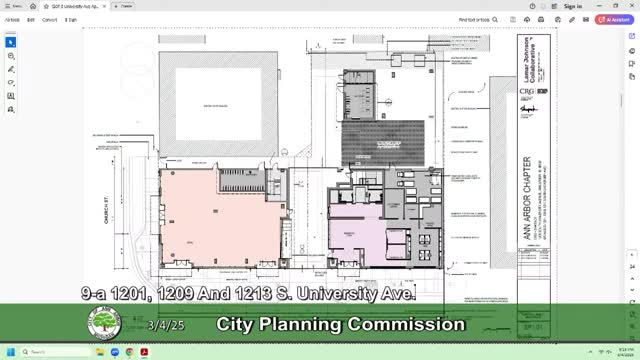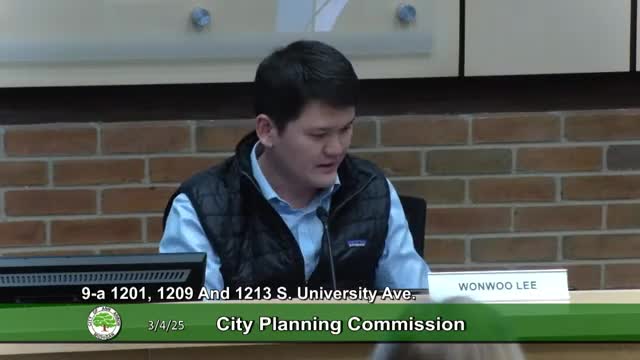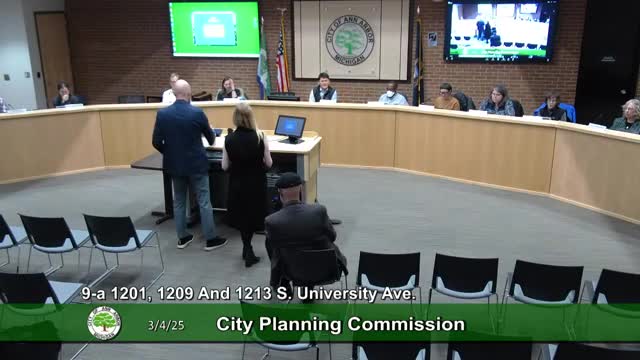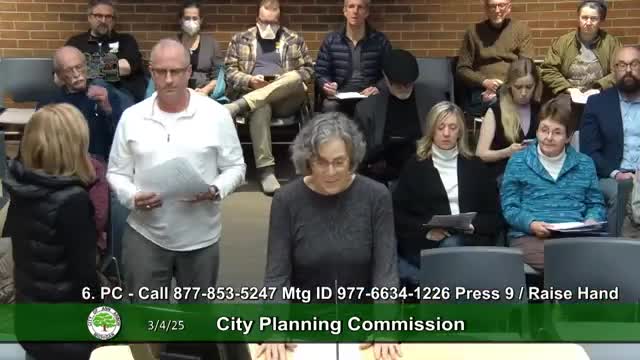Article not found
This article is no longer available. But don't worry—we've gathered other articles that discuss the same topic.

Commission recommends rezoning 2325 Crystal Way to Public Land to expand Hickory Nature Area

Planning Commission recommends rezoning of 343 S. Fifth to D1 to enable mixed-use redevelopment with library

Planning Commission approves 19-story mixed-use building at 1209 South University, recommends development agreement

